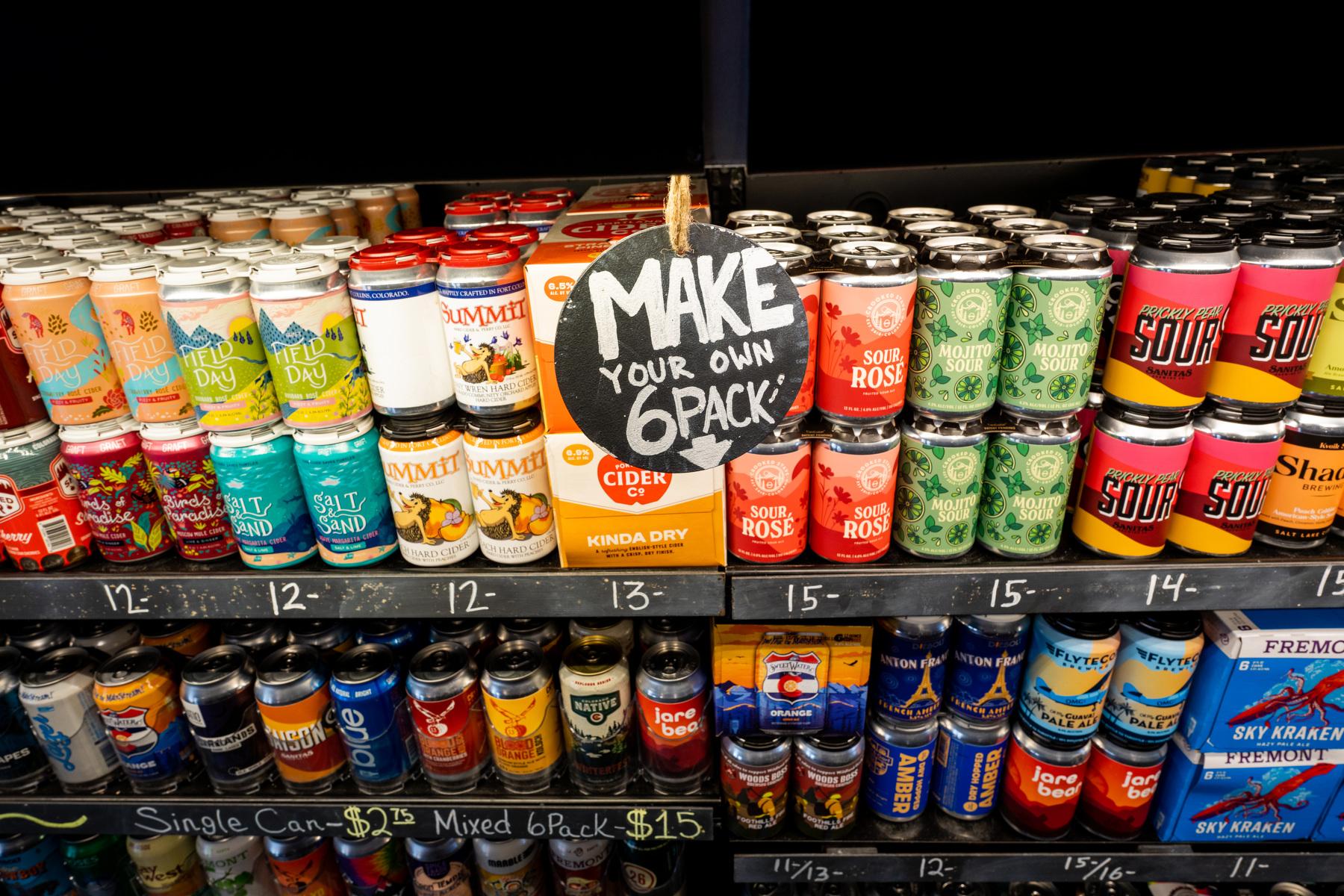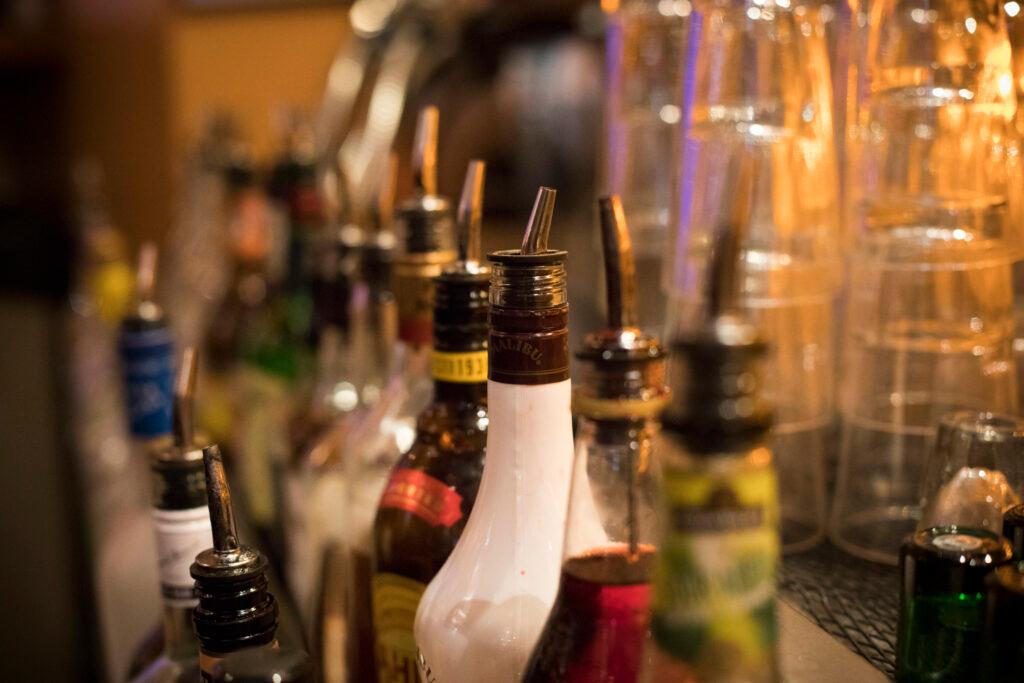
The U.S. Surgeon General Vivek Murthy earlier this month called on Congress to require health warning labels that inform consumers about the link between consuming alcohol and the risk of cancer.
The warning comes at a transitional time in terms of both evolving health awareness and changing consumer consumption habits.
“The science has been building for years, creating greater and greater certainty about more and more types of cancer,” Vivek Murthy told NPR’s All Things Considered. “But what is clear is that while people know, for example, about the link between tobacco and cancer, less than half of people in America know that alcohol is, in fact, connected to cancer risk.”
The advisory described alcohol consumption as the third leading cause of cancer in the United States.
“The direct link between alcohol consumption and cancer risk is well-established for at least seven types of cancer including cancers of the breast, colorectum, esophagus, liver, mouth (oral cavity), throat (pharynx), and voice box (larynx), regardless of the type of alcohol (e.g., beer, wine, and spirits) that is consumed,” it stated. “For breast cancer specifically, 16.4 percent of total breast cancer cases are attributable to alcohol consumption.”
The warning drew mixed reactions in Colorado, both among businesses that sell alcohol and public health experts who study it.
A lot of gray areas
“We know alcohol, which is ethanol, damages the DNA and increases risk that way. And we also know there's an association between cancer and inflammation and alcohol use increases inflammation,” said Cathy Bradley, dean of the Colorado School of Public Health and deputy director of the CU Cancer Center. A link between heavy alcohol consumption and cancers of the liver and esophagus has long been known. What's new is more evidence regarding smaller amounts of consumption and other cancer types.
“We're learning more about breast cancer for sure, as well as, and that evidence has been building, colorectal cancer, and now there are some recent studies out on prostate cancer,” she said.
For years, scientists have warned about the dangers of heavy alcohol consumption for liver and esophageal concerns. Now, with new data, “we're learning that small amounts of consumption can also increase your risk for other types of cancer as well,” she said.
She noted it's a hard area to research with a lot of gray areas.
“We're starting to understand that gray area better and to be able to say what the risks are so that you can evaluate your own health behaviors and genetic risk factors as well, along with the rest of the information,” she said.
Gauging cause and effect
Another Colorado expert, Dr. Ned Calonge, agreed that there’s little dispute about the health impact of drinking large quantities.
“We certainly have known that heavy drinking was associated with liver cancer and then kind of the oral pharyngeal cancers as well. So that information is not new,” said Calonge, a professor of epidemiology and associate dean for public health practice at the Colorado School of Public Health.
He chaired a federal panel for The National Academies to examine the relationship between the consumption of alcohol and health outcomes.
It made three conclusions that reached “the level of moderate certainty for the committee,” he said.
One was that moderate alcohol consumption is associated with lower all-cause mortality. All-cause mortality is defined as the total number of deaths in a population from any cause over a specific time period. It's a key indicator of a population's health.
It found moderate alcohol drinking is associated with an increase in breast cancer and moderate drinking is associated with a decreased risk of cardiovascular deaths.
“Those were the three conclusions we could make with moderate certainty. It is a mixed bag,” Calonge said.

The New York Times reported this month that the panel’s conclusions had become part of a tug-of-war between industry groups and public health authorities about upcoming dietary recommendations regarding drinking in moderation.
Calonge said drawing clear conclusions from research about drinking is challenging because it’s hard to gauge cause and effect.
“We are always stuck with the fact that observational studies are what we're going to have because conceptually putting together a randomized control trial of moderate alcohol consumption is daunting, if not impossible,” said Calonge, who has served as the state’s chief medical officer since 2023. “We're left with these associations that we have to use to make decisions in both our personal decisions around alcohol and then the recommendations from authoritative groups.”
At the heart of the debate is research about the risks of drinking in moderation. “The impact of moderate alcohol drinking on health is complex and the results are mixed,” he said. “Further research will help elucidate the risks to a higher degree.”
Sales fell in Colorado in 2024
Whether it’s due to health warnings, the sobriety movement or consumers' habits being altered by the COVID-19 pandemic, sales of alcohol fell last year in Colorado.
Sales of large categories of alcohol — beer, wine, hard liquor spirits — declined through the first half of 2024 compared to the same period the prior year, according to data from the Colorado Department of Revenue, CPR reported in September. Total sales were down 6 percent.

CPR reached out to various industry groups. Some didn’t respond, others declined interview requests and sent a statement.
Colorado’s brewing industry has grown exponentially over the last decade, according to the Boulder-based nationwide Brewers Association. It has the fifth most breweries per capita in the U.S., generating more than $2.6 billion annually in economic impact, including jobs created and revenue generated.
Each adult drinks on average 5.6 gallons of craft beer a year, the group estimates, eighth in the country.
In a statement, the Brewers Association said small and independent breweries “support the responsible and moderate consumption of alcoholic beverages.” It added adults of legal drinking age “should be mindful of the amount of alcohol they consume and ensure that they are making the best decision for themselves” based on lifestyle and family health history.
A PR contact for the Colorado Brewers Guild, a nonprofit trade group, said it didn’t feel qualified to provide insight since it’s “not in the public health industry. There are numerous studies out there that conclude that moderate amounts of alcohol are safe.” The statement said, “As beer is a beverage of moderation, the Guild supports reasonable and moderate consumption of alcoholic beverages.”
Amid rising costs and changing tastes, beer sales were down in 2023 nationally and in Colorado, CPR reported last April.
Warning recommendation drops at a challenging time
The surgeon general’s warning comes at a trying moment for alcohol-related businesses.
“The timing is not ideal because restaurants are heading into a pretty slow month,” said Denise Mickelsen, communication director with the Colorado Restaurant Association, which represents more than 5,000 restaurants statewide. She said January has gotten even more challenging with the rise of Dry January.
She said typically full-service restaurants earn 20 percent or more of their total sales through sales of alcoholic beverages.
“So any sort of news that alcohol is not good for you is not really helpful to our struggling restaurants in Colorado,” she said.
Many Colorado restaurants are struggling to keep their doors open and some have closed. On the heels of the pandemic, “every single operational cost has gone up since 2020,” she said, including property taxes, interest rates and wages. But consumers often balk at paying higher prices, she said. “So operators are just completely handcuffed and they can only stay open so long,” she said.
The percentage of Americans who drink liquor, wine or beer is down to 58 percent – the lowest number since 1996, according to Gallup. Four in 10 Americans who do drink say they want to drink less, according to NCSolutions.
Adapting by selling non-alcoholic beverages
The shift in consumer tastes has sparked a sharp increase in the rise of non-alcoholic drinks, mocktails and “zero-free” cocktails.
Beckon, a Michelin-starred restaurant on Larimer St. in Denver’s RiNo neighborhood is among the Colorado businesses adjusting to the changing times.
“I think there's been a decline in consumption of alcohol for sure, maybe even in the last six months we've seen,” said Allison Anderson Holmes, whose title at Beckon is director of experience, which is akin to a general manager. That’s not trivial, as she said alcohol might make up half its sales.

But more customers are interested in what she calls a “zero proof” pairing, a non-alcoholic option, though revenues from those sales don’t equate to alcoholic drinks. “You can’t charge as much,” she said.
On a recent visit, Peter Briggs, the bar lead at Beckon, showed off a pair of non-alcoholic drinks he’d prepared for guests.
One is a celery drink, an extract with some Mount Olympus Greek tea and green tea, it gets paired with an egg custard and smoked trout roe (fish eggs). Another is a shishito pepper-flavored drink, which is paired with a fish course. Both are mostly clear with a slight green tinge.

Briggs said he thought the development of what he called Beckon’s “non-alcoholic program” of drinks made sense.
“Things ebb and flow all the time. So whether it swings one way where everyone is in a very health-conscious mindset right now, which is totally understandable,” Briggs said, noting he doesn’t consume a lot of alcohol. “I have definitely tapered off quite a bit and it just comes to trying new things and seeing how you feel at the end of the day. If it makes you feel better, then why not?”
As chefs prepped the night’s meal in the kitchen, which is built into the dining room of the restaurant where diners will sit at an 18-seat counter, a wine steward sat at a computer in a room filled with wine bottles and glasses.
Possible impact on consumer trends
Jake Henriksson, the lead sommelier, said he thought the surgeon general’s warning could have an impact on consumption trends, though he’s optimistic about the public’s ability to process the information.
He said he has a lot of respect for the medical profession and sobriety movement and was well aware that alcohol is a drug.
“However, I think that given the broad scope of the warning, it could be misconstrued by a number of people,” he said. “Alcohol consumption should be more focused on responsible and productive consumption as opposed to just going out and getting after it, so to speak.”

Holmes at Beckon echoed those thoughts.
“A lot of things might cause cancer, and yes, wine is perhaps one of them, but there's also a history of wine with food that is undeniable and such a pleasure to take part in that,” she said. “I think it would be really sad to see that ultimately dismissed. But I know it will come back.”
Meanwhile, she said the non-alcoholic trend is here to stay, as people discover new places, like Beckon, “to be a non-drinker and have the same experience as your friends that are drinking.”
Mickelsen, from the restaurant association, agreed.
“It helps operators in many ways. It provides a service, which is what they're in business to do,” Mickelsen said. “And it also, it helps bridge that gap between a glass of water and a glass of wine. You can split the difference a bit with something that doesn't have alcohol in it, but still makes the customer feel like they're ordering a special drink.”
National data is tracking the change. Sales of non-alcoholic drinks increased by 31 percent in 2024 compared to the previous year, according to NielsenIQ.
Holmes has a main message for Coloradans. “No matter what you drink, keep supporting restaurants,” she said.









